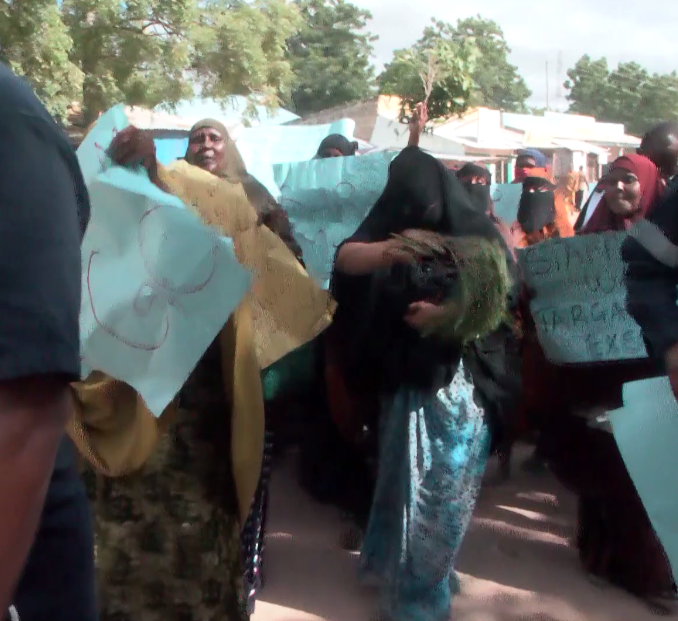The situation in Dadaab seems to be getting worse each day, following the termination of contracts of a section of the host community staff working at the UNHCR offices.
The crisis stems from an Executive Order issued by US President Donald Trump on January 20, the day he assumed office. His country remains one of the largest donors to UNHCR.
The freezing of foreign aid, including USAID programmes, has had far-reaching consequences, especially for vulnerable populations like the refugees.
A section of the host community staff, who were
employed by the UNHCR on contract basis are the latest to be affected.
On Wednesday, more than 100 workers took to the streets to protest termination of
their contracts earlier this week.
The employees included watchmen, cooks and
sweepers.
Speaking to the outside the
Dadaab UNHCR offices, Abdi
Gedi the chairman of the host community employees regretted the turn of
events, saying they were handed the termination letters a day before.
“We
reported on duty yesterday only to be handed letters
terminating our contracts. This was done with minimal notice. We find this to be
completely unfair to us,” Abdi, a watchman, said.
“I feel extremely betrayed by my employer. I have dedicated 25 years working here, including during difficult
times, only for the employer to wake up and sack me without prior notice or explanation. How am I
expected to handle this situation, considering that I have a family to care for?" he posed.
Suleiman Ahmed wondered why they were
sacrificed, yet employees who take home huge salaries were spared.
“We
find this to be discriminative because how come staff working with
UNHCR and those who earn huge salaries were spared? Those of us who
take home very little have been laid off. What criteria were
they using when they arrived at this decision?” he asked.
Nasibo Abdifarah, a cleaner, said it is
unfortunate their kindness of hosting the refugees has been taken for
granted.
“As we are aware, these refugees have destroyed our
environment in a big way. The only thing we can say we are benefiting from is by UNHCR employing a few
members of the host community. Now
that they have sacked us, what business do we have to continue hosting them?” she posed.
Abdifarah said a majority of those affected were the
youth, and individuals with ill intentions can easily
lure them to join criminal groupings.
Last week, hundreds of refugees from the four
camps — Dagahaley, Hagadera, Ifo and Ifo 2 — gathered at Ifo 2 to raise their voices
in peaceful protest.
They appealed to donor countries, particularly the US, to reconsider their positions and restore life-saving
humanitarian aid.
UNHCR has since acknowledged the termination of the contracts of a section of the host community staff but cited unavoidable budget constraints due to the loss of a major donor.




![[PHOTOS] Kindiki leads economic empowerment forum in Wajir](/_next/image?url=https%3A%2F%2Fcdn.radioafrica.digital%2Fimage%2F2025%2F08%2F5a14de4c-c863-48bb-819d-36f1f26ae789.jpeg&w=3840&q=100)







